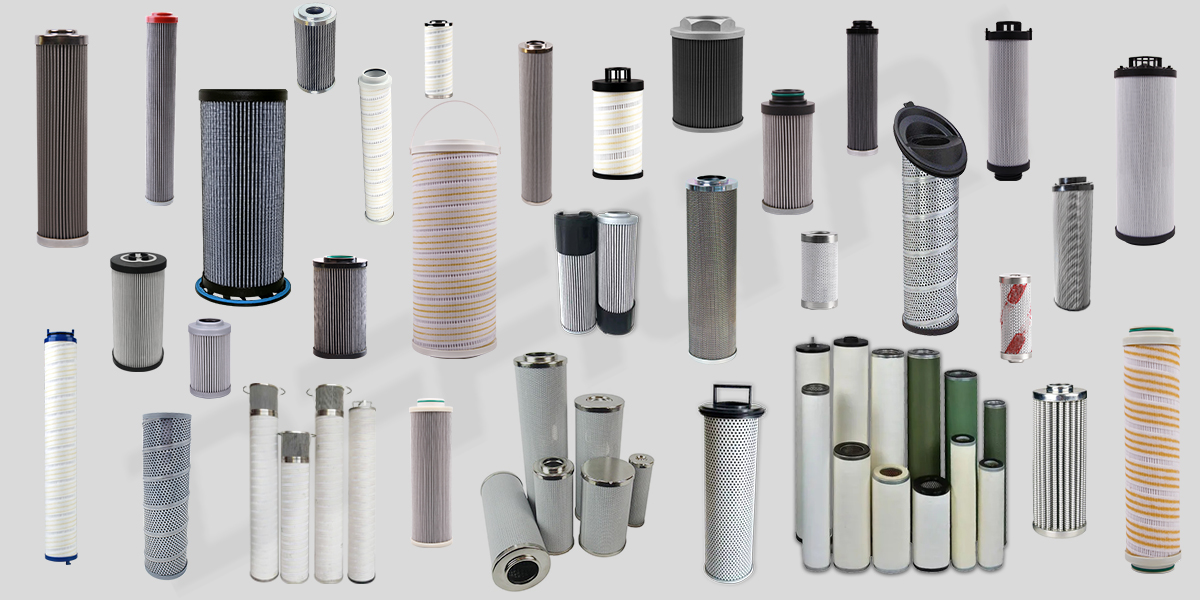As an important component of the hydraulic system, the material and filtering principle of the hydraulic oil filter element are crucial for ensuring the normal operation of the hydraulic system.
Material of hydraulic oil filter element
There are various materials for hydraulic oil filter cartridges to meet the working needs of different hydraulic systems. Common materials include:
Steel wire mesh filter: woven from stainless steel wire, it has the characteristics of corrosion resistance and high temperature resistance. This type of filter is usually used for coarse filtration and can effectively remove larger particles and impurities.
Fiber paper filter cartridge: made of cellulose or synthetic fiber materials, with high filtration accuracy and large filtration area. Fiber paper filter can remove small particles and colloidal substances in oil, making it suitable for hydraulic systems that require high filtration accuracy.
Stainless steel filter element: Made of stainless steel mesh, it also has the advantages of high temperature resistance and corrosion resistance. Stainless steel filter cartridges are suitable for industrial environments and demanding hydraulic systems, providing long-lasting filtration effects.
Ceramic filter element: Made of ceramic material, it has high wear resistance and corrosion resistance. Ceramic filter cartridges are commonly used in hydraulic systems that require extremely high cleanliness and particle retention capabilities.
Ultrafiltration membrane filter: made of specific ultrafiltration membrane materials, capable of filtering small particles and colloidal substances. This type of filter is typically used in systems that require extremely high levels of particulate matter and pollutants.

The filtration principle of hydraulic oil filter element
The filtering principle of hydraulic oil filter element is mainly to filter the filter medium through the filter material, to intercept impurities and solid particles, in order to ensure the purity of the oil. Specifically, when the hydraulic system is working, the oil enters the outside of the hydraulic oil filter element through the hydraulic oil filter element, and the oil flow is guided by the channel inside the filter housing. During the flow process, solid particles and impurities in the oil will be intercepted by the fine filtering holes of the filter element, while clean oil will flow out through the central channel of the filter element and enter the hydraulic system for lubrication and operation.
The filter housing of hydraulic oil filter element is generally made of metal material, which has sufficient strength and rigidity to prevent the filter element from breaking under high pressure in the hydraulic system. The design inside the filter housing is usually in a snail spiral shape, allowing hydraulic oil to pass evenly through the filter element, thereby improving the filtration effect. The internal structure design of the filter element can be adjusted according to different filtration accuracy and flow requirements to meet the needs of different hydraulic systems.

In summary, the material and filtration principle of hydraulic oil filter element play a crucial role in the normal operation of hydraulic system. When selecting hydraulic oil filter elements, it is necessary to determine the most suitable filter element material and filtration accuracy based on the specific requirements and working conditions of the hydraulic system.